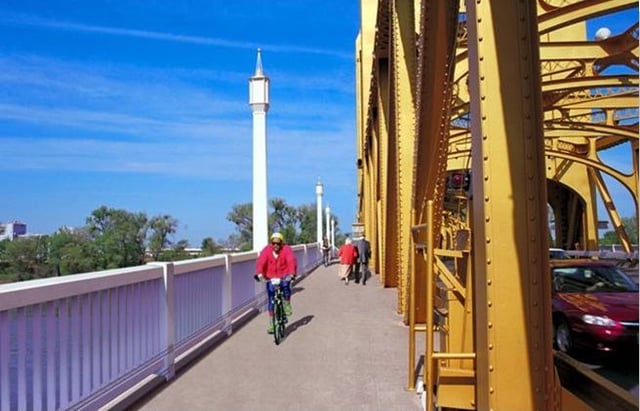Concrete sidewalks have a long and storied history. According to researchers, they can be traced to ancient Rome, where lime and volcanic rock were first mixed to make mortar. Concrete is still the go-to material, but its drawbacks are obvious. Who hasn’t tripped over a crack or stubbed a toe on an uneven sidewalk surface? Concrete is susceptible to the thawing and refreezing of the ground, melting chemicals, tree root growth and more.
Regardless, sidewalks continue to play an important role in the transportation arena, particularly in areas where pedestrians must safely cross vehicle bridges. These pedestrians understandably want to be separated from motor traffic whenever possible. According to People For Bikes’ Green Lane Project, only 78 protected bike lanes existed nationwide before 2011. As of this year, the number of protected bike lanes has grown to 213. The implementation of these protected lanes is a huge challenge for bridge owners, who must meet weight limits if considering concrete for both the bridge structure and elevated access.
In most cases, decreasing vehicle lanes sizes to accommodate a pedestrian crossing just isn’t practical. And, constructing a separate bridge carries a high price tag. Is there a better solution?

Walk this way! A typical FRP cantilever sidewalk on steel stringers balances light weight with lower costs. Composite Advantage delivers prefabricated, numbered and ordered sections for easy, quick installation on support beams attached to the vehicle bridge. Owners reap long term savings thanks to the natural corrosion resistance and low maintenance of FRP material.
So, the next time you take a walk along city streets, consider how nice an FRP cantilever sidewalk would be on that bridge you're about to cross. Want to learn more? Visit our resource page or drop us a line. Have photos of a favorite cantilever sidewalk? Send them our way or post them on our Facebook page.

